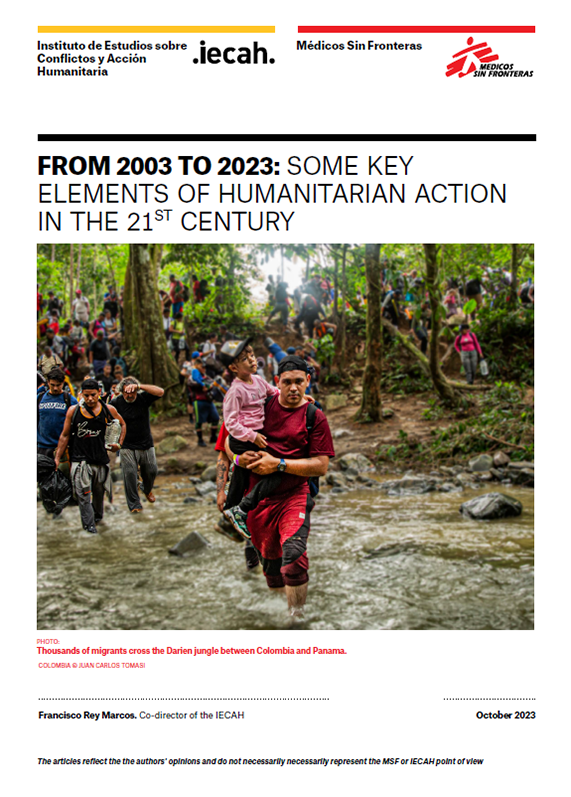From 2003 to 2023: Some key elements of Humanitarian action in the 21st Century
Since the IECAH and MSF Spain began to prepare and publish the two-yearly Report on Humanitarian Action in the first years of this century, the international scenario has undergone important changes, both at the geopolitical level and in terms of the threats that we face, with the climate crisis, extreme poverty and inequality, along with situations of fragility and violence as the most obvious, the world is quite different today from the one we used to know. And that has had important repercussions in humanitarian affairs. We would at times remember that, as the tango lyrics say, “twenty years is nothing” and that may be true in certain areas. In the humanitarian field, however, things change at such a speed that if we look back at these last 20 years we can see that the necessary capacity for adaptation that humanitarian action has had since its inception has accelerated in these two decades and that many of the issues that we considered immutable or, at least, quite stable, have been modified in an important way. Humanitarian action, as can be seen in this year’s report, has grown in funds or institutional complexity and has been incorporating aspects such as decolonial approaches, intersectionality or localisation that were not present, or were a minority or testimonial, two decades ago. At the same time, some debates continue and issues related to principles, legal frameworks, protection of affected populations, and attempts to avoid the instrumentalisation, politicisation or manipulation of aid, among others, have had to be revisited.


 05-Humanitarian-Action-state-of-situation
05-Humanitarian-Action-state-of-situation